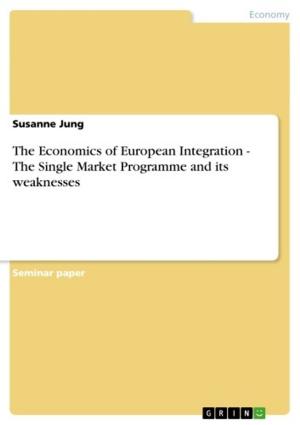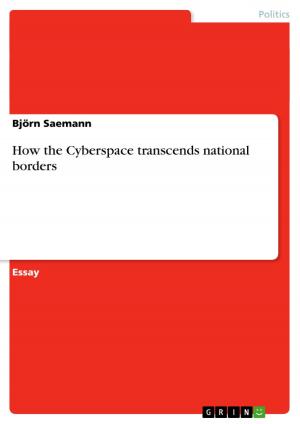The role of different corporate culters in case of a merger
Business & Finance, Management & Leadership, Management| Author: | Thomas Weihmann | ISBN: | 9783638621663 |
| Publisher: | GRIN Publishing | Publication: | April 19, 2007 |
| Imprint: | GRIN Publishing | Language: | English |
| Author: | Thomas Weihmann |
| ISBN: | 9783638621663 |
| Publisher: | GRIN Publishing |
| Publication: | April 19, 2007 |
| Imprint: | GRIN Publishing |
| Language: | English |
Research Paper (undergraduate) from the year 2007 in the subject Business economics - Business Management, Corporate Governance, grade: 1,3, University of Cooperative Education Bad Mergentheim, 30 entries in the bibliography, language: English, abstract: Never before in history has the convergence of companies been that intense like in the year 2006. Gaining market share immediately, cutting costs through consolidation, expanding product lines or obtaining reputation are just a few ideas behind an acquisition or merger. Mergers and acquisitions rose in US Dollars to a new high from the peak in the year 2000 with 31.022 mergers and acquisitions and a capital flow of 3.332 billion US Dollars to 29.008 M&As and 3.568 US Dollars dated by 28th November 2006. An interesting aspect is that four out of the five largest transactions in 2006 did take place in Europe and not in America. Germany has the fourth largest merger and acquisitions market in the world with 1.488 transactions and a volume of 145,1 billion US Dollars in 2005. According to an analyst from Goldman Sachs, one of the biggest players in the M&A business, the M&A market is going to stabilize on the high level of 2006 also in the continuing years. Mergers and acquisitions are not a new topic in the age of globalization but with rising competition, price wars and merging markets it seems for many companies the only backdoor. However every second transaction is value-destroying and the aimed synergies remain a vision and never get realized. Bigger, stronger and more profitable are the key arguments for mergers and creating competitive advantage due to economies of scale. The core challenge often heard by management is to 85 % the integration process. Especially cultural differences are not taken into account properly. The centre stage of this study is to analyse how corporate culture and mergers melt together or collide and the reasons why so many companies fail. It covers the steps of a merger process and how the corporate culture can be aligned. The study can not examine explicitly the integration process like the due diligence method but it is a brief overview on what to be aware of when thinking about summing up synergies in mergers and acquisitions with different corporate cultures. It reveals that in the M&A business you can not set up the equation that one plus one is equal to two.
Research Paper (undergraduate) from the year 2007 in the subject Business economics - Business Management, Corporate Governance, grade: 1,3, University of Cooperative Education Bad Mergentheim, 30 entries in the bibliography, language: English, abstract: Never before in history has the convergence of companies been that intense like in the year 2006. Gaining market share immediately, cutting costs through consolidation, expanding product lines or obtaining reputation are just a few ideas behind an acquisition or merger. Mergers and acquisitions rose in US Dollars to a new high from the peak in the year 2000 with 31.022 mergers and acquisitions and a capital flow of 3.332 billion US Dollars to 29.008 M&As and 3.568 US Dollars dated by 28th November 2006. An interesting aspect is that four out of the five largest transactions in 2006 did take place in Europe and not in America. Germany has the fourth largest merger and acquisitions market in the world with 1.488 transactions and a volume of 145,1 billion US Dollars in 2005. According to an analyst from Goldman Sachs, one of the biggest players in the M&A business, the M&A market is going to stabilize on the high level of 2006 also in the continuing years. Mergers and acquisitions are not a new topic in the age of globalization but with rising competition, price wars and merging markets it seems for many companies the only backdoor. However every second transaction is value-destroying and the aimed synergies remain a vision and never get realized. Bigger, stronger and more profitable are the key arguments for mergers and creating competitive advantage due to economies of scale. The core challenge often heard by management is to 85 % the integration process. Especially cultural differences are not taken into account properly. The centre stage of this study is to analyse how corporate culture and mergers melt together or collide and the reasons why so many companies fail. It covers the steps of a merger process and how the corporate culture can be aligned. The study can not examine explicitly the integration process like the due diligence method but it is a brief overview on what to be aware of when thinking about summing up synergies in mergers and acquisitions with different corporate cultures. It reveals that in the M&A business you can not set up the equation that one plus one is equal to two.















